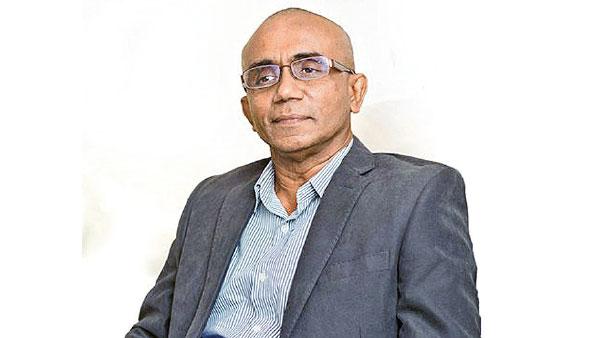
Poor economic policies and shortsightedness in business decisions of the United National Party (UNP) have pushed the country backwards to a point of no return, says Dr. Indrajith Aponsu, Assistant Director of the Econsult Investment Services and Senior lecturer at the Department of Economics, Colombo University.
 He said the economy needs national safeguards.
He said the economy needs national safeguards.
“This government has been in power since the beginning of 2015. During that period for various reasons the country’s economic situation started deteriorating. This was something which no one would have expected when this government took office in 2015. Historically, the UNP government has always been an investor friendly government. Ironically, what happened was the exact opposite,” Dr Aponsu told the Sunday Observer.
Citing possible reasons for the negative performance of the past regime, he said that the UNP had lost its focus from the start.
“Prior to the regime change the economy was doing well. During that time economic growth was on an upward trend recording seven per cent or more economic growth, infrastructure was in place, the war against terrorism was eradicated, foreign direct investors were keen on investing in Sri Lanka, inflation was decreasing and interest rates were on a low trajectory,” he said.
Criticising the economic policies that were adopted at the time, he said that the deterioration of the economy started under the UNP government.
He said that the price of a barrel of oil coming down to US$ 30 a barrel when the ÜNP government was in power, provided a de facto foreign exchange saving for the government which would have been enough for the government for the foreseeable future.
Calling the government’s decision to give public sector workers a Rs.10,000 increase was a mistake and he also said that under the 2015 government the country was managed according to social market economy policies.
During that time, the government was under pressure to curtail expenditure. But the government burdened themselves with roughly about Rs.13 billion extra expenditure on salaries every month.
“It was a massive burden on the budget, they couldn’t recover from that. It was additional salary expenditure of Rs.150 billion every year. The government could have constructed 50 first class hospitals with that money. It would have made a big difference to the society at large. The government’s decision to spend extra money on public sector salaries was an amateurish decision by the government. This extra burden on the government would continue until inflation discounts it in about five to ten years. According to economic theories expenditure brings aggregate demand. “Aggregate demand is where people are made to spend,” Dr. Aponsu said.
Commenting on the public sector salary increments he said that the salary increase was an injection towards only a particular sector of the society.
“This was disadvantageous towards other sectors of the society. Most of the public sector workers took loans to buy vehicles.
There was an influx of vehicles into the country which drained a huge chunk of foreign exchange. Much foreign exchange was spent on consumer goods. Car imports went up by about 150% in 2015. Indirect taxes were increased by the government. It was tough on the poor population,” he said.
Analysing how the UNP and the SLFP embroiled on a collision course, he said, the government lost the grassroots and everyone due to the coalition. Countries which record high economic growth have managed the markets. J R Jayewardene tried to have a blend between the open economy and managed economy. In between other rulers tried various methods. The 2015 government followed the open economy policy. This would have damaged the country.
“Sri Lanka has been a welfare economy from 1931 with a 90% literacy rate and the Sri Lankan economy is not a “South Asian economy” in that sense. The last government did not understand this.
The total free market concept has failed all over the world. The total free market policywhich was experimented in Latin American countries in the 70s and 80s failed to the extent that they have not yet recovered from those consequences,” Dr Aponsu said.
Agriculture is a sector which fluctutates every year but the worry was that the industry and services also deteriorated under the past government. Garments didn’t flourish despite the GSP+. You cannot raise cost structures of industries and then ask them to export. There are many countries which can compete with Sri Lanka. A future government should try not to score marks on financial policies and rectify issues in the economy.
Sri Lanka was not prepared for the U.S government’s increase of interest rates. The increase of interest rates is like a black hole or tsunami. It sucks funds from all over the world. So, anything that is invested here would simply go out.
The past government was caught off guard for that situation although they had the ability to collect much foreign exchange with the dropping of oil prices. The present government has a responsibility to stop the exchange rate drop. When the exchange rate is going up you cannot handle interest rates.
